Areas of application of OSB boards
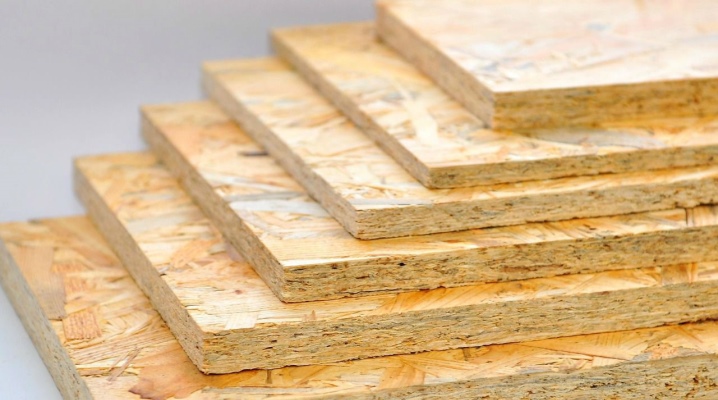
Technological progress contributes to the constant modernization of various fields of activity. And first of all, this applies to building materials. Every year, manufacturers release more and more new products onto the market that can serve their owners for several decades. These are dry mixes and decorative slabs.
But despite the emergence of new products, consumer demand is still directed towards well-known materials. These are exactly what OSB-plates belong to. Remarkably, this material can be called multifunctional, because it is used not only in construction, but also in other manufacturing industries.
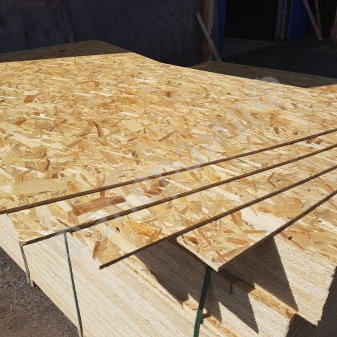
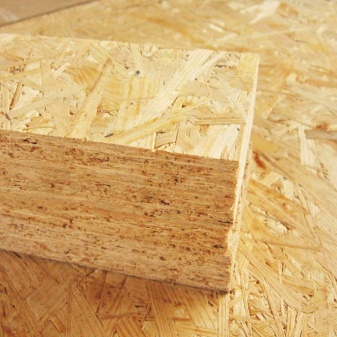
Specifications
OSB is a board that is a derivative product of recycled wood waste. They contain small fibers, residual debris from the processing of conifers and chips. The role of the binder is played by the resin.
A distinctive feature of OSB-plates is multilayer, where the shavings of the inner sheets lie across the canvas, and the outer ones - along. Thanks to this feature, the slabs are as strong as possible and are able to withstand any mechanical stress.
Modern manufacturers are ready to offer the buyer several types of OSB boards, each of which has a number of advantages, but also has some disadvantages.
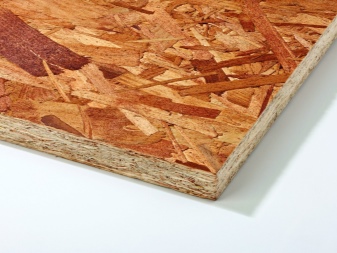
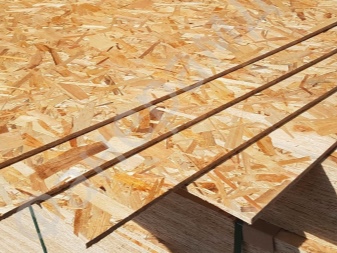
When choosing one or another variety, it is important to consider the main purpose of the upcoming work.
- Chipboards.This material does not have good density indicators. It instantly absorbs moisture, which destroys the structure of the board. Such copies are recommended for use in furniture production.
- OSB-2This type of slab has a high strength index. But in a humid environment, it deteriorates and loses its basic qualities. That is why the presented type of OSB should be used for interior decoration of premises with a standard humidity indicator.
- OSB-3.The most popular type of slabs, characterized by a high strength index. They can be used in rooms with controlled humidity. Many builders argue that OSB-3 plates can be used to sheathe the facades of buildings, and in principle this is so, it is only important to think over the issue of their protection. For example, use a special impregnation or paint the surface.
- OSB-4.The presented variety is the most durable in all respects. Such boards easily tolerate a humid environment without requiring additional protection. But, unfortunately, the demand for OSB-4 is very low, the reason for this is the high cost.
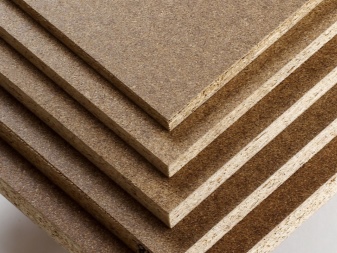
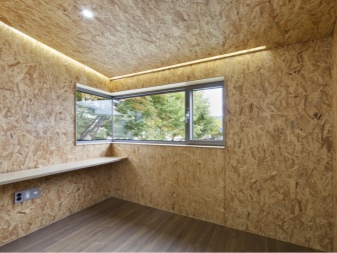
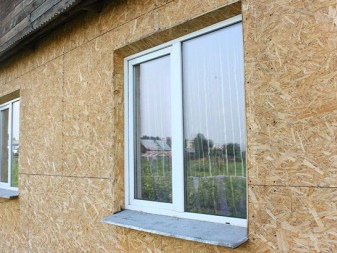
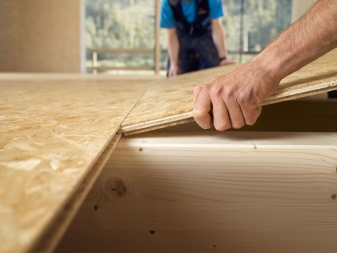
Further, it is proposed to familiarize yourself with the technical characteristics characteristic of all varieties of OSB-plates.
- Increased level of strength. The correct thickness can support a lot of weight.
- Flexibility and lightness. Thanks to these characteristics, using OSB, you can design elements of a rounded shape.
- Uniformity. In the process of work, the integrity of the texture of OSB-plates is not violated.
- Moisture resistance. Compared to natural wood, OSB boards do not lose their external beauty.
- Compliance. When cutting with a saw, the OSB does not crumble, and the cuts are smooth. A similar effect from punching holes with a drill.
It is worth noting that the OSB material also has excellent sound and heat insulation. The presence of a special impregnation protects the slabs from mold or mildew.
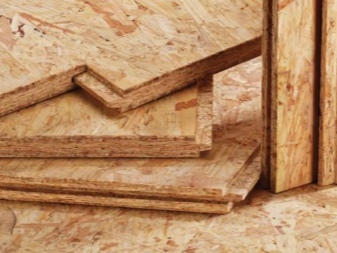
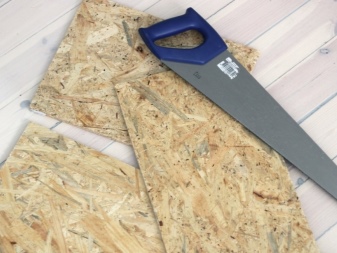
How are they used for cladding?
As mentioned earlier, OSB is used as a cladding material. Often we are talking about arranging walls, ceilings and floors in residential premises. Slightly less often, OSB-slabs are used for sheathing the base of a roofing structure.
The material for interior decoration is characterized by a high level of strength, capable of withstanding deformation. The material used as a base for a roofing structure is lightweight, rigid, and has sound absorption properties.
Thanks to their reinforced structure, the slabs are able to withstand various weather conditions.
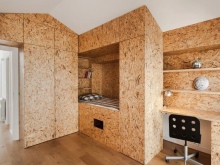
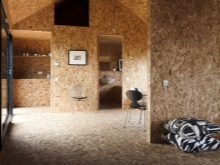
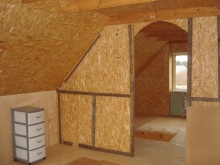
The technology of using OSB-plates for outdoor work is divided into several parts.
- First of all, you need to prepare a working base, namely, get rid of the old coating.
- Next, assess the condition of the walls. If there are gaps or cracks, they must be primed and covered. The repaired area should be left for a while to dry completely.
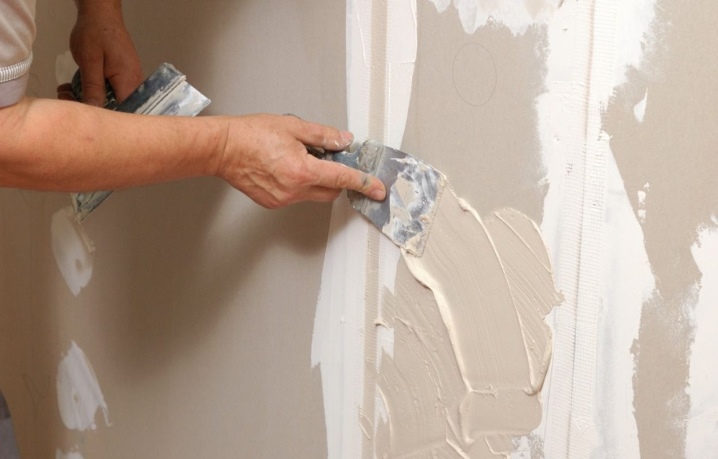
Now you can start installing the frame and insulation.
- Sheathing is carried out over the lathing, thanks to which additional thermal insulation is created. For the lathing itself, it is recommended to purchase a wooden beam impregnated with a protective compound.
- The racks of the lathing should be installed strictly according to the level, otherwise the surface will get waviness. In places where there are deep voids, it is recommended to insert pieces of boards.
- Next, the insulation is taken and laid out in the formed cells of the sheathing - so that there is no gap between the timber and the insulation material. If necessary, you can fix the insulation sheets with special fasteners.
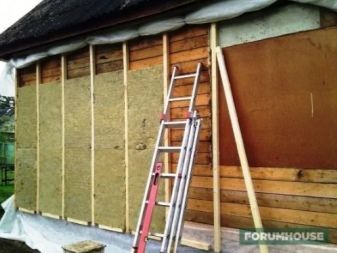
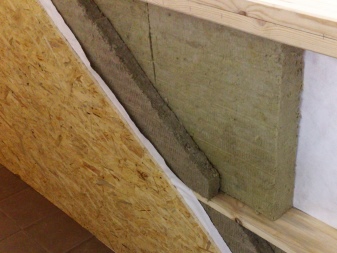
The 3rd stage of work is the installation of the slabs. Here the master needs to take into account several nuances. Firstly, it is necessary to fix the plates with the front side towards you. Secondly, when sheathing a one-story house, it is enough to use plates with a thickness of 9 mm, placing them in a horizontal position. Well, now the installation process itself.
- The first slab is attached from the corner of the house. It is important that a 1 cm gap is formed from the foundation. The first slab must lie flat, for checking it is necessary to use a level. It is preferable to use self-tapping screws as fasteners. The step run between them should be 15 cm.
- After laying out the bottom row of OSB-plates, the next level is set.
- For sheathing adjacent areas, it is necessary to overlap the slabs so that a straight joint is formed.
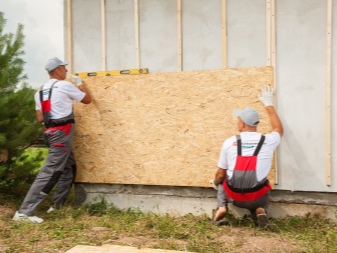
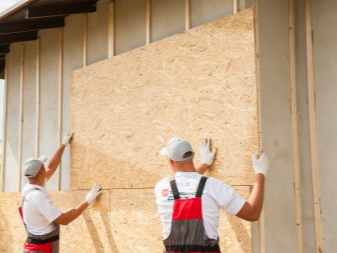
After the walls are sheathed, it is necessary to make the finishing.
- Before proceeding with the decoration, you need to get rid of the seams between the installed plates. For this purpose, you can use a putty on wood with the effect of elasticity, or you can prepare the solution yourself using chips and PVA glue.
- The simplest way to decorate OSB boards is to paint with a special paint, on top of which strips of a contrasting color are attached. But today there are other options, such as siding, facade panels or artificial stone. Experts do not recommend using a glue-fixed finish.
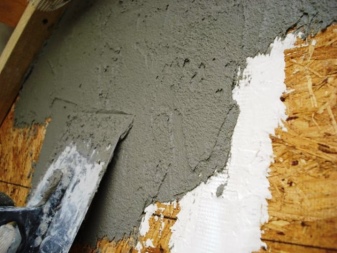
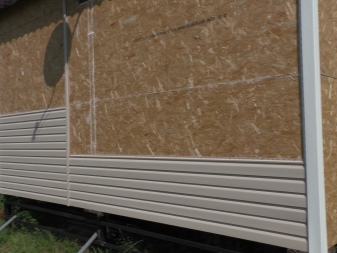
Having dealt with the intricacies of facade cladding, it is proposed to familiarize yourself with the rules for decorating walls inside houses. Technological processes practically do not differ from each other, and yet there are some nuances.
- First of all, a wooden crate or metal profile should be installed on the walls. The metal base is used much more often. The voids between the base and the crate must be filled with small boards.
- The distance between the lathing posts should be no more than 60 cm. Self-tapping screws should be used as fasteners.
- During the installation of OSB-plates, it is required to leave a gap of 4 mm between the parts. For interior decoration, the sheets should be laid vertically, thereby reducing the number of joint joints.
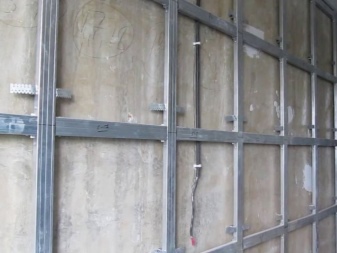
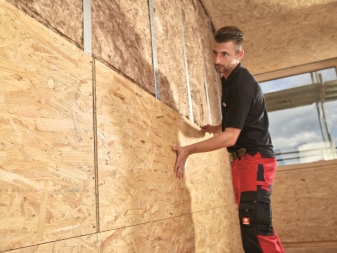
Paint can be used to decorate the cladding of interior walls. Those who wish to preserve the naturalness of wood are encouraged to use colored and transparent varnishes. The OSB surface can be pasted over with non-woven or vinyl wallpaper, or decorative plaster can be applied.
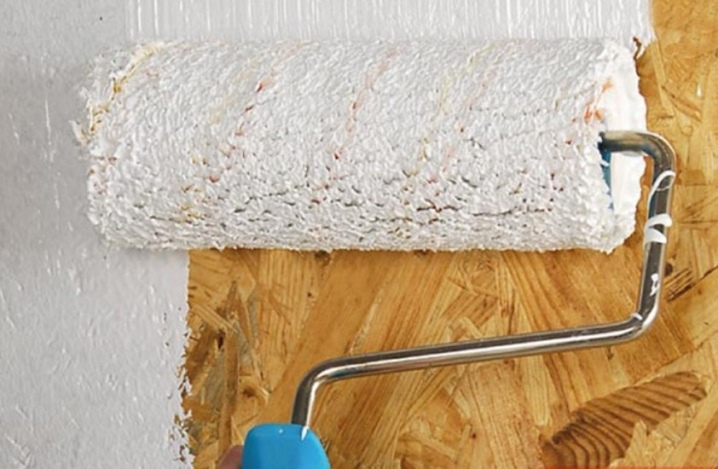
Use in construction
OSB boards are mainly used for cladding building facades, leveling interior walls, floors and ceilings. However, the scope of use of the presented material is not limited to this. Due to its multiple characteristics, OSB is also used in other areas.
- During construction work, as the creation of support surfaces. In structures of a temporary type, OSB sheets are laid out on the floor using a self-leveling lightweight concrete mixture.
- With the help of OSB-plates, you can make supports for lags or a base for plastic cladding.
- It is OSB that is often used to create I-beams. These are supporting structures of high quality. According to their strength characteristics, they are not inferior to structures made of concrete and iron.
- With the help of OSB-plates, removable formwork is prepared. For multiple use, the sheets are sanded and covered with a film that does not adhere to concrete.
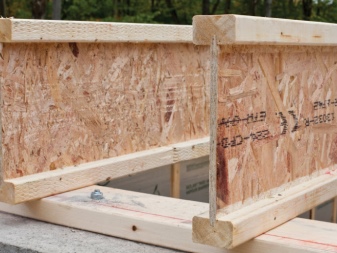
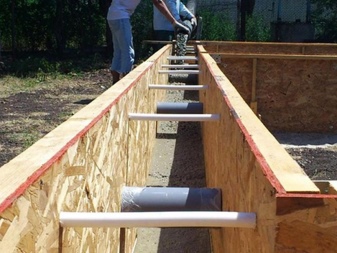
What else are slabs used for?
Many people believe that construction is the only purpose of OSB-plates, but this is far from the case. In fact, the scope of these sheets is quite diverse. For example, freight companies use OSB panels as packaging material for small-sized cargo. And for the transportation of larger, fragile-type cargoes, boxes are made from the most durable OSB.
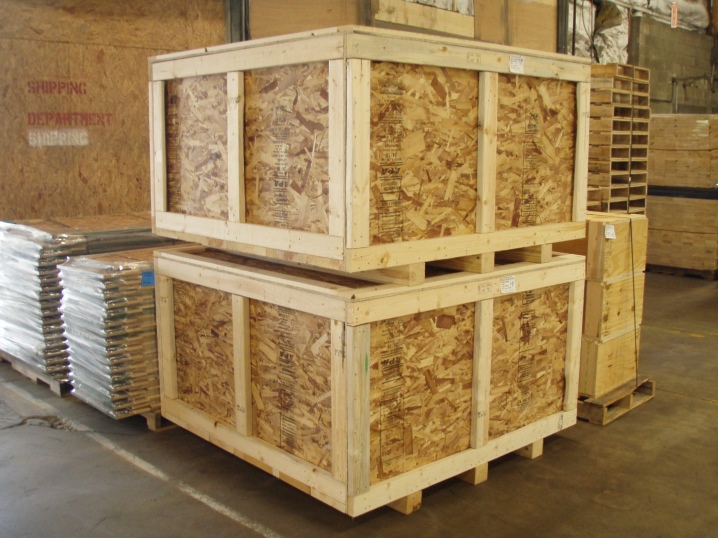
Furniture manufacturers use OSB to make budget products. Sometimes such designs can be made brighter and more attractive than natural wood products. Some furniture manufacturers use OSB material as decorating inserts.
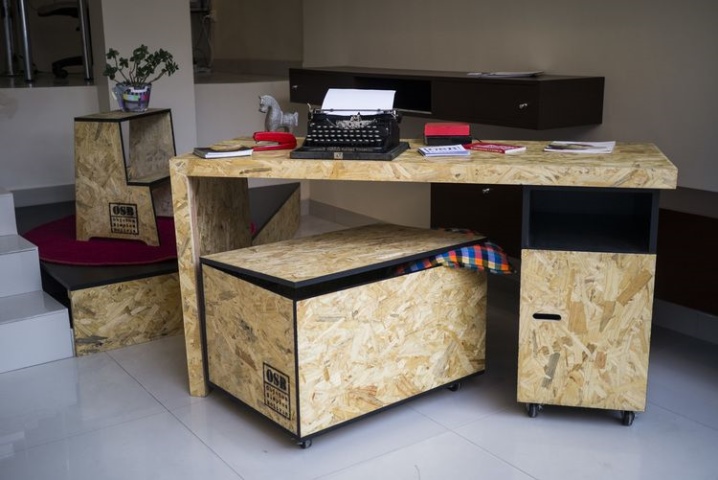
Drivers engaged in cargo transportation cover floors in truck bodies with OSB sheets... Thus, the slip of the load is reduced when driving on winding roads and when cornering.
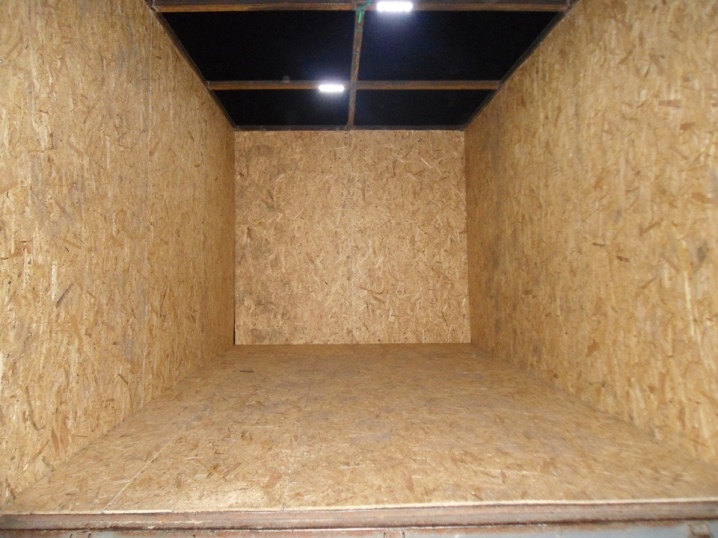
By the way, many design companies use thin OSB sheets to create modular projects... After all, this material lends itself to decoration, thanks to which it is possible to draw up visual sketches on a reduced scale and, if necessary, revise the plan.
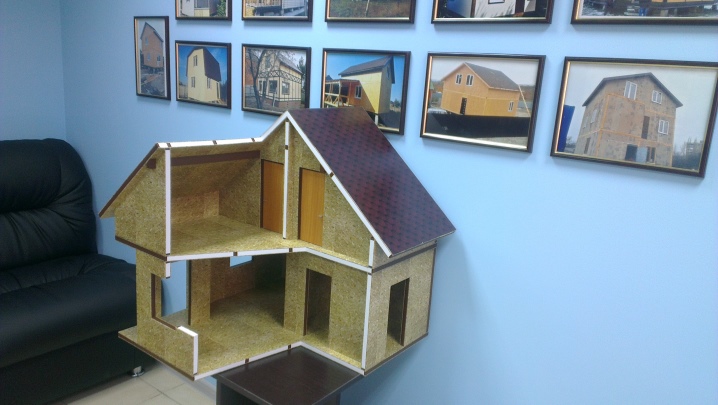
And on the farm you can't do without OSB material. Partitions are made of it in outbuildings, walls of corrals are built. This is far from the entire list where OSB material is used, which means that its purpose has a much wider range.
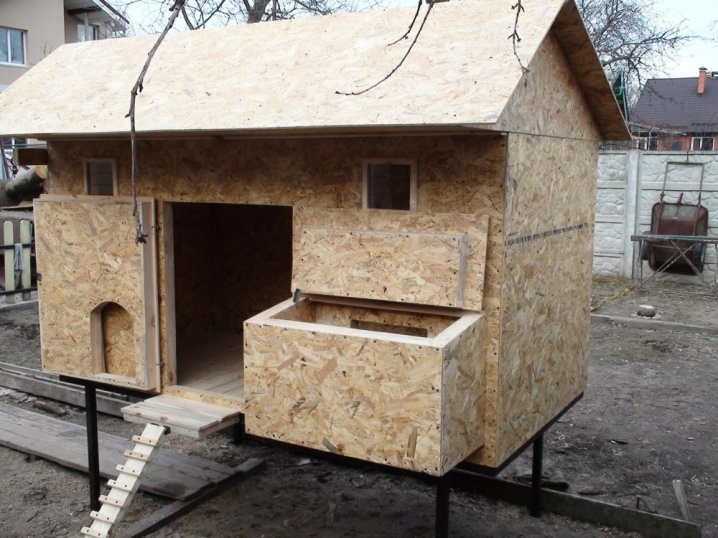













The comment was sent successfully.